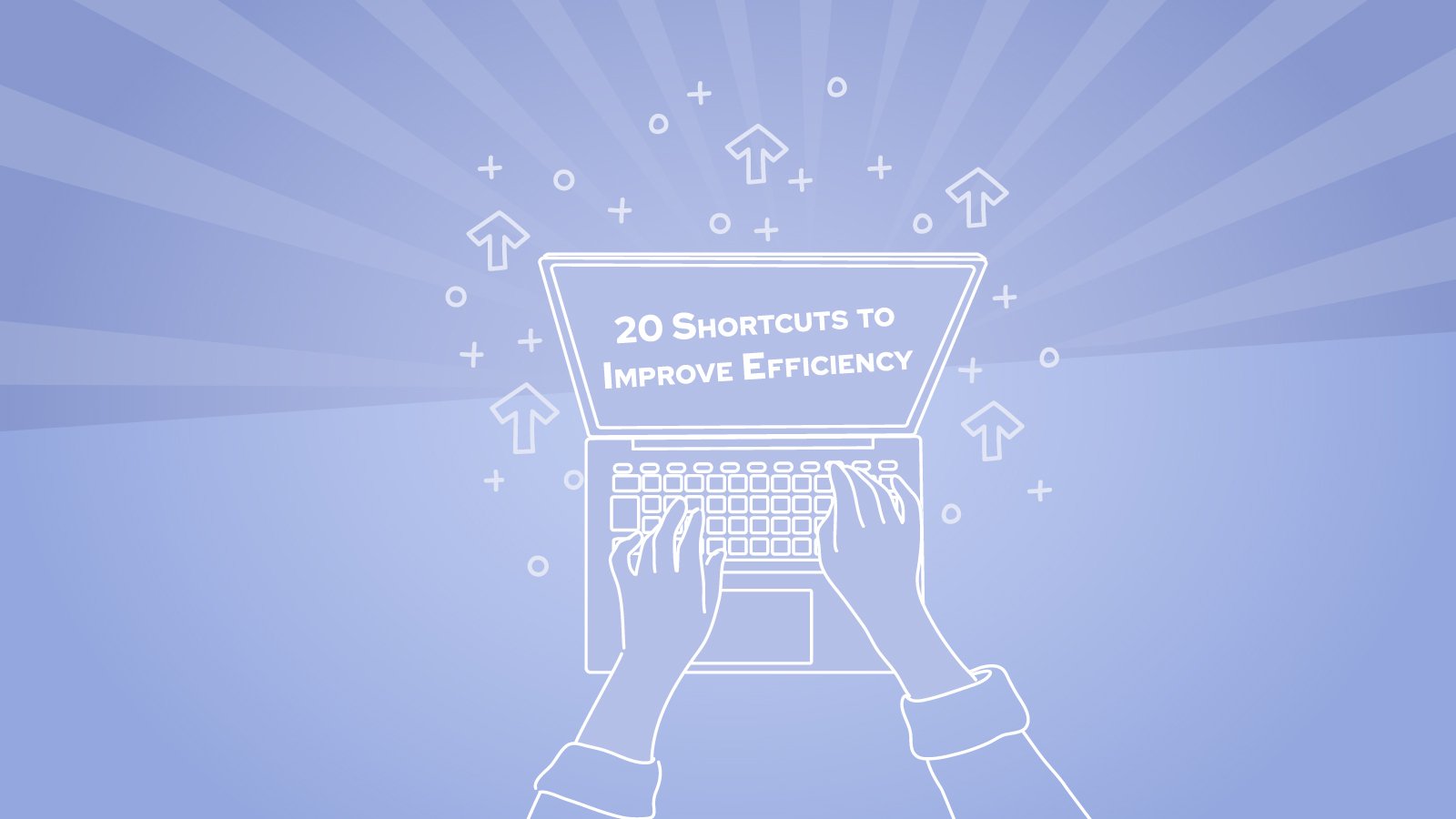Whether it’s hybrid and remote working, paring back and refocusing your efforts or starting again from scratch, the last few years have changed the way we all work – we would argue, for the better.
The modern workplace is all about social collaboration and rising tech trends, along with being more flexible about when and where people prefer to work to deliver the best results.
But it hasn’t all been positive. For some, the pandemic brought about a need to downsize, change direction or shut down entirely and start again. And we have all been put under a new strain, be that financial, mental or both, which we’ve had to learn to adjust to.
For better or worse, the common thread that runs through all of these experiences, is that business (and the way we work) has changed. So it makes sense that the systems and processes we had in place before, (which may well have been brilliant) might not be serving us quite as well anymore.
Here, in a bid to alleviate this we’ve compiled our top ten ways to improve efficiency in your business, so that you can:
- Generate more business
- Offer/add more value
- Target business investment
- Focus your energy on being more successful.
1. Objectives
This is all about distinguishing between urgent and important tasks, so you can focus your time and energy on what matters most– and in doing so move towards your goals more quickly, efficiently and effectively.
In essence it’s about simplifying your daily tasks, with the aim of improving your time management.
“I have two kinds of problems: the urgent and the important. The urgent are not important, and the important are never urgent.” — Dwight D. Eisenhower
As well as coming up with catchy quotes, Eisenhower also devised a system to differentiate between what is urgent and what is important - and prioritise them accordingly.
Essentially, urgent tasks are time-sensitive and demand your attention. They’re tasks you feel obligated to address. Focusing on urgent tasks puts you in a reactive mindset, which can make you feel defensive, rushed and blinkered.
Important tasks, on the other hand, contribute to your long-term mission, values, and goals. They may not yield immediate results. Focusing on important tasks puts you in a responsive mindset, which can make you feel calm, rational and open to new ideas.
His system for working your way through this in the day-to-day running of your business, is perfectly illustrated in The McDonald’s Methodology.
2. Vision and Strategy
First introduced in a McKinsey staff paper in 1980, ‘the business system’ concept was also mentioned in the book The Competitive Advantage.
In essence, it charts all the steps involved in creating and delivering a company’s product. At each stage in the process, from product development to sales and service, managers can choose how to conduct themselves. And it’s this element of choice that is so crucial to the system.
It’s about looking at how (or if) the choices made reinforce the company’s overall value proposition, and therefore its competitive advantage, by consistently aligning conduct with the value proposition.
It works on the idea that thorough examination of current and potential conditions at each stage, can show you which forces are likely to shape your business in the long-term, and how best to approach them. Find out more about ‘the business system’.
3. Project Management
If you’re not familiar with project management software, a cursory Google search will tell you that the popular consensus is that it’s the way forward - and with good reason.
There are hundreds of variations on the theme, so pick the one that suits your business needs best. A versatile project management software essentially eliminates the need to use a ream of tools to run a single project.
An extremely scalable solution, the concept brings all your must-have project tools (like files, time tracking, team chat, calendar et al) – into a neat web portal.
It means cross-functional teams that work on web design, social media, advertising projects and the like can streamline their entire collaborative creative process.
The majority are 100% cloud-enabled and boast some reassuring security features - for example, there are many where using the secured IP lets you restrict IP addresses accessing your account, so you can ensure data security and safe telecommuting.
4. Accounting and Finance
You’ll have heard of QuickBooks, but there’s a reason for that. It comes in an impressive suite of varieties, from desktop editions through to the much-favoured online edition.
Depending on your requirements, you can choose which will suit you best, or if you need a more bespoke option, you can create a custom package, which they’ll happily put together for you.
QuickBooks reaps the benefits of being owned by Intuit, a large software company that’s helped it become one of the leading lights in the world of accountancy software. For the same reason it’s also able to run frequent deals, which are well worth paying attention to. Find out more about QuickBooks.
5. Marketing products and services
Whether you’re a long-term follower of Cognition or you’ve just briefly perused the website, you’ll have noticed that we’re a big fan of the next-level marketing and sales toolkit that is HubSpot Marketing Hub.
In fact, we were one of the first UK companies to become a Diamond HubSpot Partner, which goes some way to explaining our enthusiasm - we think it’s fantastic.
From creating newsletters to publishing content and managing your ads, HubSpot Marketing Hub offers all the tools needed to bring your marketing, sales and service to the next level. It means you can get started with inbound and help leads and customers in the best way possible. Find out more about HubSpot Marketing Hub.
6. Business development
Business development is the process used to identify, nurture and acquire new clients and business opportunities, with the aim of driving organisational growth and increasing profits. It’s the creation of long-term value through customers, markets and relationships.
A strong business development strategy is the framework that instructs your team on how to find and generate high-value leads that will ultimately support the company’s long-term goals.
The four things to think about when creating a brilliant business strategy
- Identify Your Audience
Focus on specific firms, industry fields, or individuals that are likely to propel your business forward. Aim for quality over quantity – a large audience is not always necessary, but a high-performing one always is.
- Conduct Market Research
Learn as much as you can about your audience. Before you can begin encouraging them to work with you, you should be able to answer the following:
- What are their pain points?
- What do they need/what would help them?
- How can you improve their current situation?
Once you have a response to these questions, then you can begin to analyse your competition. Identify what sets you apart from your competitors, and leverage that difference as your competitive advantage.
- Pick Your Channels
Assess your total revenue goals for the year and outline the specific methods you will use to reach those goals - where are you likely to be seen by the right people?
- Define SMART Goals
Set SMART (specific, measurable, attainable, relevant, time-related) goals that will help you to measure and track your progress.
7. Sales
We know we already mentioned HubSpot, but they’re popping up again here because we also advocate their sales and pipeline tool, HubSpot CRM.
It allows you to get a live view of your entire sales funnel on a simple, clean dashboard.
In its own words: “You can sort deals won and lost, appointments scheduled, contracts sent over, and track performance against quotas you set in one simple view. Sort deals by name, owner, amount, or stage with custom filters for actionable intel in a fraction of the time.”
Find out more about HubSpot CRM.
8. Optimisation
Continuously optimising your website is critical to sustaining long-term growth. But unless you’re an SEO wizard, (or employ the services of a company full of just such wizards), this is a bit of a minefield.
In the ongoing highly competitive battle for visitors and conversions, one of the most valuable weapons in your arsenal is your ability to iterate new and better versions of your website as user expectations (and the competitive landscape) evolve.
We like Google Search Console, which is a free search optimisation tool from Google.
Through it, you can measure SEO performance, view keyword impressions, and clicks, see your backlinks, and check for crawling and speed errors. (If you don’t know what these are, it explains it, and is very straightforward to use).
You simply sign in with your Google account, verify site ownership, and wait for data to be collected.
Find out how you can boost your visibility on search engines with our free SEO audit.
9. Delivery
Studies have found that 80% of customers will switch companies after one poor service experience. Yes, just one.
So making sure your customers are happier than Larry himself, is imperative.
Luckily, incorporating customer satisfaction measurement into your current customer success strategy is fairly straightforward.
To accurately gauge customer sentiment, you need to ask, then compare it against quantitative reports.
When deciding how best to approach your customers, consider the following:
- Define your goals
- Make a plan
- Choose a platform for your customer satisfaction survey
- Customise your survey's layout and questions
- Determine your survey's trigger
- Analyse your survey data
- Make adjustments (and repeat regularly)
10. Customer service
AskNicely is an award-winning NPS tool. NPS (Net Promoter Score) is a metric used in customer experience programmes to measure the loyalty of customers to a company. NPS scores are measured with a single question survey and reported with a number from -100 to +100.
Over 90% of people rely on recommendations, and 70% will look at online reviews before purchasing. This means no matter how good your marketing or savvy your sales team, you can't overcome the power of a glowing (or damning) review from a customer's BFF, sibling, or second cousin-once-removed.
AskNicely is an industry-leading mobile platform that delivers personalised motivation for frontline workers powered by real-time customer feedback. Thousands of businesses around the world use AskNicely to improve their customer experience and drive customer retention, revenue expansion and referrals.
Why all this matters
Identifying the processes that are stifling progress, holding you up or simply taking up too much of your time is nowhere near as easy as it sounds. If you’d like help with this process, or have any questions at all, get in touch.




